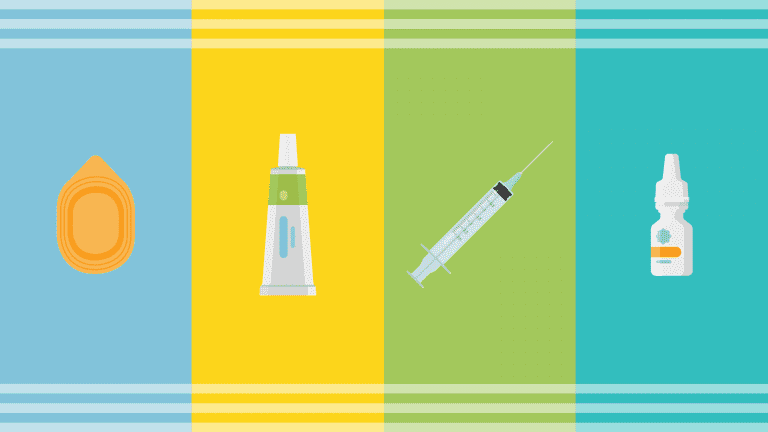Testosterone is the hormone responsible for regulating male fertility, fat distribution, muscle mass, and the production of red blood cells. The hormone is produced in the testicles. Notably, during adolescence years as well as early adulthood, the production of testosterone multiples by about 30 times. After early adulthood, testosterone levels may slightly decline every year. In women, testosterone is produced in the adrenal glands and ovaries in much smaller amounts. Other functions of the hormone include regulation of mood, thinking ability, and verbal memory. Despite the decrease in testosterone levels being a natural occurrence after a man hits over 30 years, the process can result in significant emotional and physical changes.
Table of Contents
What are the causes of low testosterone levels?
Apart from aging, there are many other potential factors that lead to male hypogonadism. They include:
- Metabolic disorders, for instance, hemochromatosis, referring to excessive iron in the body.
- Liver cirrhosis.
- Pituitary gland tumors or dysfunctions.
- Infection or injury of the testes.
- Medications such as steroids, opioids, and hormones used for treating prostate cancer.
- Inflammatory conditions, such as sarcoidosis that results in inflammation of the lungs.
- Abnormal growth of the hypothalamus is responsible for controlling many hormones.
- Acute or chronic illnesses
- Alcohol abuse.
- Obesity.
- Extreme weight loss.
- Type 2 diabetes mellitus (uncontrolled).
- Klinefelter syndrome.
- Chemotherapy.
5 key testosterone boosting ingredients
- D-Aspartic Acid (D-AA): Most of the sought-after testosterone boosters out there, such as those available at https://www.riverfronttimes.com/stlouis/5-best-testosterone-boosters-for-muscle-gain/Content?oid=34885722 contain D-aspartic acid. D-AA is a type of amino acid, and amino acids are leveraged as building blocks for making proteins in the body. Nearly all amino acids occur in two different forms. For instance, aspartic acid can occur as D-aspartic acid or L-aspartic acid. The two are made up of the same chemical formula but bear a different molecular structure that mirrors each other. Whereas L-aspartic acid is used to form proteins, D-AA is used in forming and releasing the body’s hormones. D-AA can boost the production and release of testosterone.
- Vitamin K-12: Vitamin K is significant for the post-translational transformations of blood proteins and coagulation factors found in the bone matrix. The vitamin is not only distributed in the bones and liver, but also abundantly found in the gonadal tissues, brain, and kidney. Various scientific studies suggest that vitamin K alleviates the decline in testosterone production.
- Ginseng: There are many types of ginseng, with the most popular ones being the Asian Ginseng and the American Ginseng. In a clinical study that involved 66 participants, the subjects, who took Asian ginseng registered increased levels of testosterone. Used as a traditional Chinese medication for boosting sexual performance, the ingredient has been scientifically proven to boost the production of testosterone and help men experience better sexual performance. Particularly those who have previously registered erectile dysfunction.
- Magnesium: Various scientific studies have proved that magnesium increases the total testosterone production levels in men. For instance in a study involving 399 elderly Italian men, who were subject to dietary magnesium supplements. The subjects showed improvements in the production of their testosterone levels. Biologically, magnesium is involved in the pathways utilized for the generation of ATP (adenosine triphosphate), as well as the production of energy in mitochondria. The mineral is also a cofactor in more than 300 biological processes and enzymatic reactions, including protein synthesis.
- Zinc: This is a critical dietary mineral, required by the immune system for it to function properly. Additionally, zinc serves a role in cell division and helps enzymes in breaking down food together with other ingredients. Furthermore, the body also utilizes the mineral for protein synthesis. A deficiency in zinc can cause low testosterone levels. Notably, because the body does not store zinc, one needs to take foods rich in zinc everyday.
What are the effects of low testosterone?
Since testosterone is responsible for high libido in men, its decline can lead to a decrease in libido, hence declined sexual performance. This is one of the greatest worries among men facing low testosterone levels. Another effect of low testosterone is physical changes that can result in increased body fat, decreased muscle mass, increased fatigue, and fragile bones. Low testosterone also causes sleep disturbances as a result of decreased energy levels. With low levels of testosterone, one can also experience emotional changes, amounting to feelings of sadness as well as depression. Furthermore, the condition has also been linked to memory and concentration challenges. Nevertheless, regardless of the effects, you are suffering from a low testosterone level, testosterone boosters can serve as one of the best treatment options for the condition.

